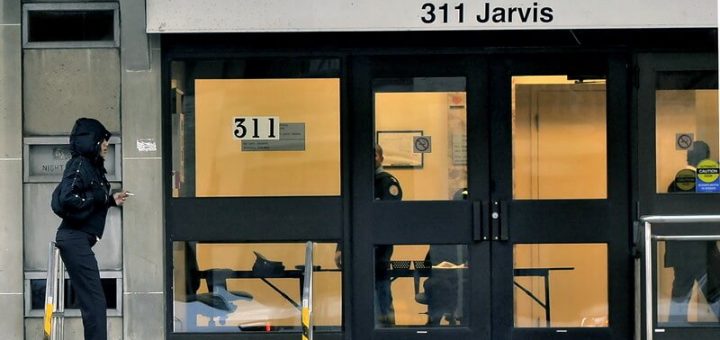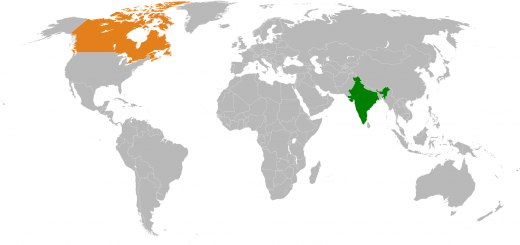R v K.J.M.: How long is too long to wait for trial for young accused?

In the wake of any landmark jurisprudence there follows a tide of cases seeking to apply the principles of the original case to novel fact situations. And so in the wake of the Supreme Court of Canada’s (“SCC” or “the Court”) 2016 ruling in R v Jordan, 2016 SCC 27 [“Jordan”] to apply hard limits to the maximum amount of time accused may be required to wait for a trial, comes R v K.J.M., 2019 SCC 55 [“K.J.M.“]. In this case, the Court was called on to determine whether the hard limits in Jordan apply in the case of minors prosecuted under the Youth Criminal Justice Act, SC 2002, c 1 [YCJA], finding that young accused are entitled to no special consideration outside of the established Jordan rules.
Factual and Procedural Background
In 2015, K.J.M. was charged with a number of offences in relation to a fight in which he was alleged to have stabbed another youth in the face and head with a box cutter. K.J.M. pleaded not guilty, saying that he was acting in self-defence. K.J.M. was under 18 years of age at the time of the fight. K.J.M. was convicted at trial in Alberta Provincial Court 19 months after charges were initially laid, in November 2019. During the trial, the SCC released their ruling in Jordan, placing an 18-month ceiling on trials in Provincial Courts and a 30-month ceiling on trials in Superior Courts.
K.J.M. appealed his conviction, on the grounds that the Jordan ceiling a) should be lower in cases of youth accused; and b) that notwithstanding any lower threshold for young accused, the Jordan ceiling had been breached regardless. In a 2-1 split decision, the Alberta Court of Appeal (“ABCA”) dismissed the appeal (R v K.J.M., 2018 ABCA 278). The ABCA decision left unsettled the question of whether there should be any presumptive ceiling in youth cases, or whether the ceilings should be lower for youth cases than the ceilings for adults contemplated in Jordan.
The Legal Background
Section 11(b) of the Canadian Charter of Rights and Freedoms [“Charter”], guarantees that any person charged with an offence has a right to be tried within a reasonable time. Prior to Jordan – in which the Court established firmly delineated definition around what constitutes a “reasonable time” – the courts relied on a multi-factoral test derived from the Court’s earlier ruling in R v Morin, [1992] 1 SCR 771 [Morin], which the Court ultimately found was too unpredictable, too confusing, and too complex.
Minors between the ages of 12 and 18 can be held criminally liable for offences, but the YCJA creates a distinct procedural and sentencing regime for determining youth criminal matters before (and beyond) the courts.
The SCC majority view
Writing for the 5-3 majority, Justice Moldaver held that there is an enhanced need for timeliness in youth trials due to the very nature of young accused. Young accused, Justice Moldaver argued, have less-developed capacity for memory, cognition of long-term cause and effect, and perception of time. Therefore, timely disposition of youth matters is particularly important in service of a number of important goals. These goals include reinforcing the connections between conduct and consequences, reducing the psychological impact of trial delays on young people, preserving the young person’s right to make a full answer and defence, and generally avoiding potential unfairness (K.J.M., paras 51-55).
Notwithstanding this enhanced need for timeliness, Justice Moldaver and the majority held that youth accused do not require a lower time ceiling than adult accused. This finding was made on the grounds that a) the Court did not see evidence that trial delays were a general concern in youth courts; and b) the time ceilings in Jordan are intended to account for the multiplicity of circumstances that might face all sorts of accused, including youth. The majority was also alert to the possibility of opening the door to a potentially unworkable sliding scale of time ceilings for different sorts of offenders. The majority also noted that it is within the discretion of courts to determine that trial delays were unreasonable even when they fell below the presumptive ceilings set in Jordan. In other words, Jordan has the necessary flexibility to accommodate all different fact scenarios without carving out a set and separate “youth discount”.
In addressing the specific facts of this case, the majority found that once defence and “extraordinary” delays had been subtracted from the total trial timeline – as Jordan requires – that the 18-month ceiling had not been breached. The majority also found that the test for “unreasonable delay” below the ceiling – sustained defence initiatives to expedite the matter, combined with delays markedly in excess of what they should have been – was not met in this case. The majority dismissed the appeal.
The SCC dissenting view
Writing for one set of dissenting reasons, Justices Abella and Brown (with Justice Martin concurring) argued that the Jordan framework should be applied in a way that respects the separate legal frameworks applying to young offenders and young accused. If, the dissent wrote, young accused experience disproportionate prejudice from trial delays and if there is a long history of recognizing the discrete interests of young accused within the criminal justice system, then it only follows that a lower presumptive ceiling should apply for youth cases. As a result, the dissent opined, a 15-month ceiling is appropriate for cases under the YCJA.
The view from here
If, as the majority and the dissenters agree, there is special prejudice to young accused arising from trial delays, and if that special prejudice was not – as the dissent wrote – contemplated by the Court in Jordan, it only stands to reason that the presumptive ceilings set in Jordan should be reconsidered in relation to prosecutions under the YCJA. The majority in K.J.M. never fully grappled with this logic, and for this reason, the case leaves an unsatisfying aftertaste. While not setting a discrete ceiling for youth accused may indeed reduce a risk of setting in motion multiplying ceilings as new fact scenarios arise, this is little comfort for youth accused who may suffer an 18-month ceiling more acutely.







Join the conversation